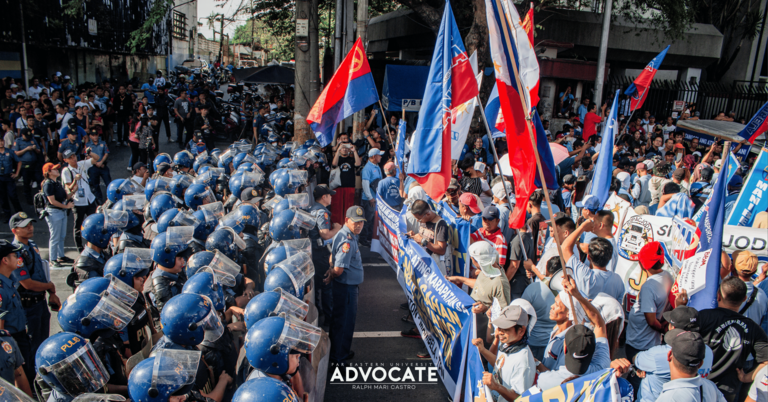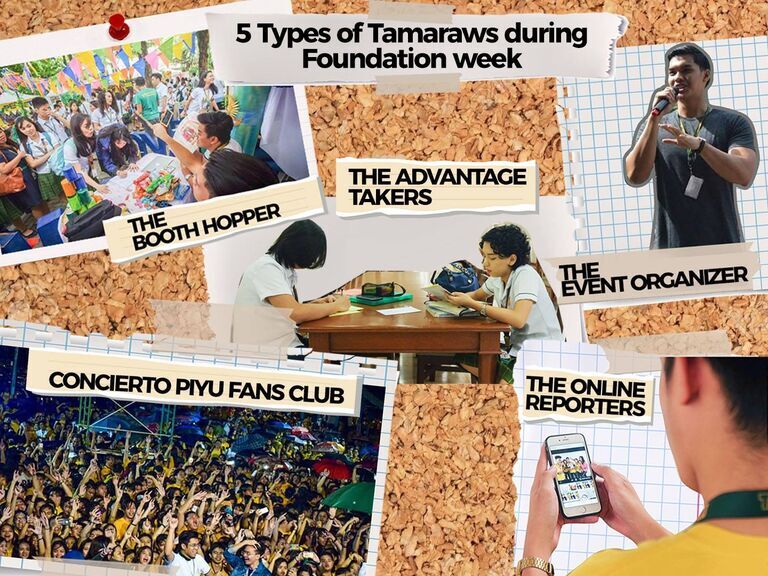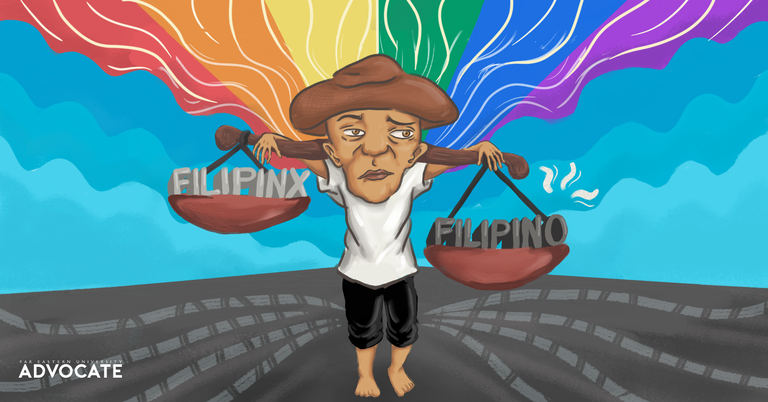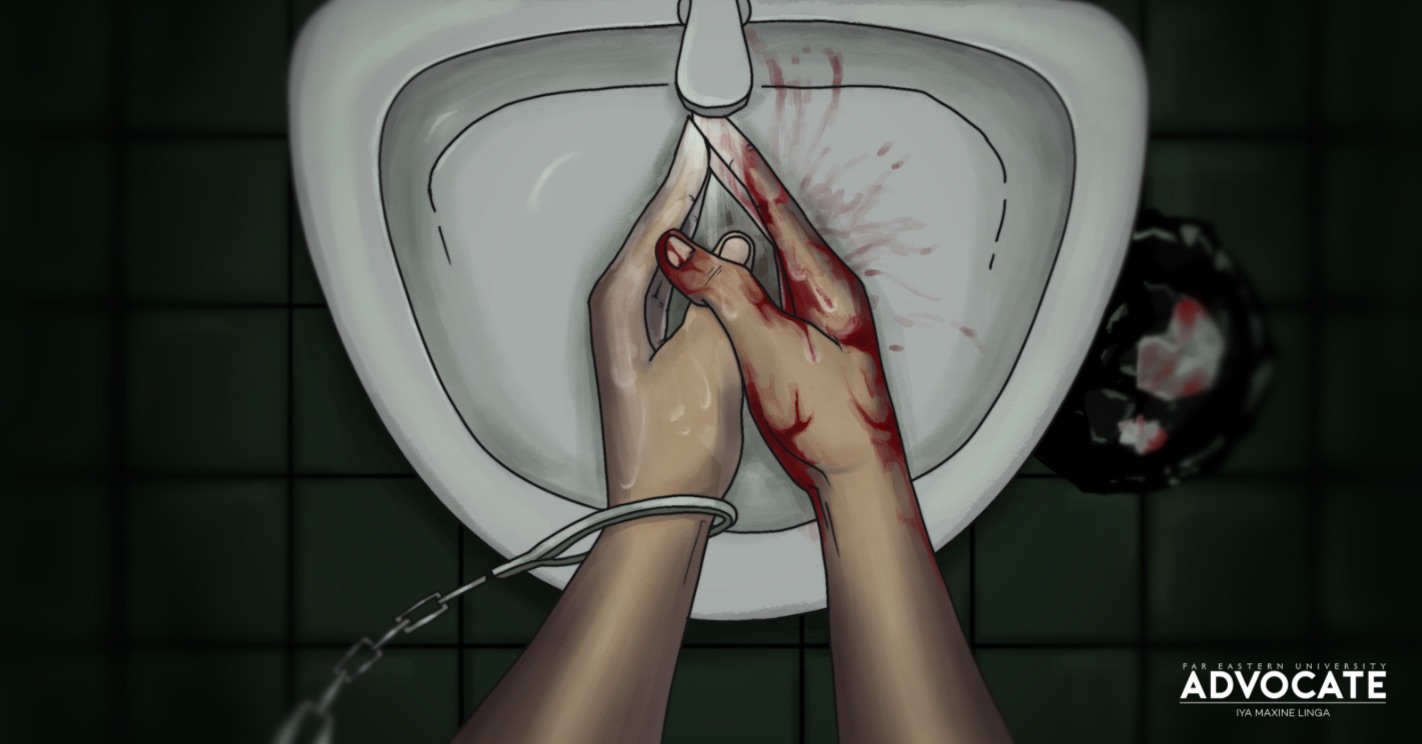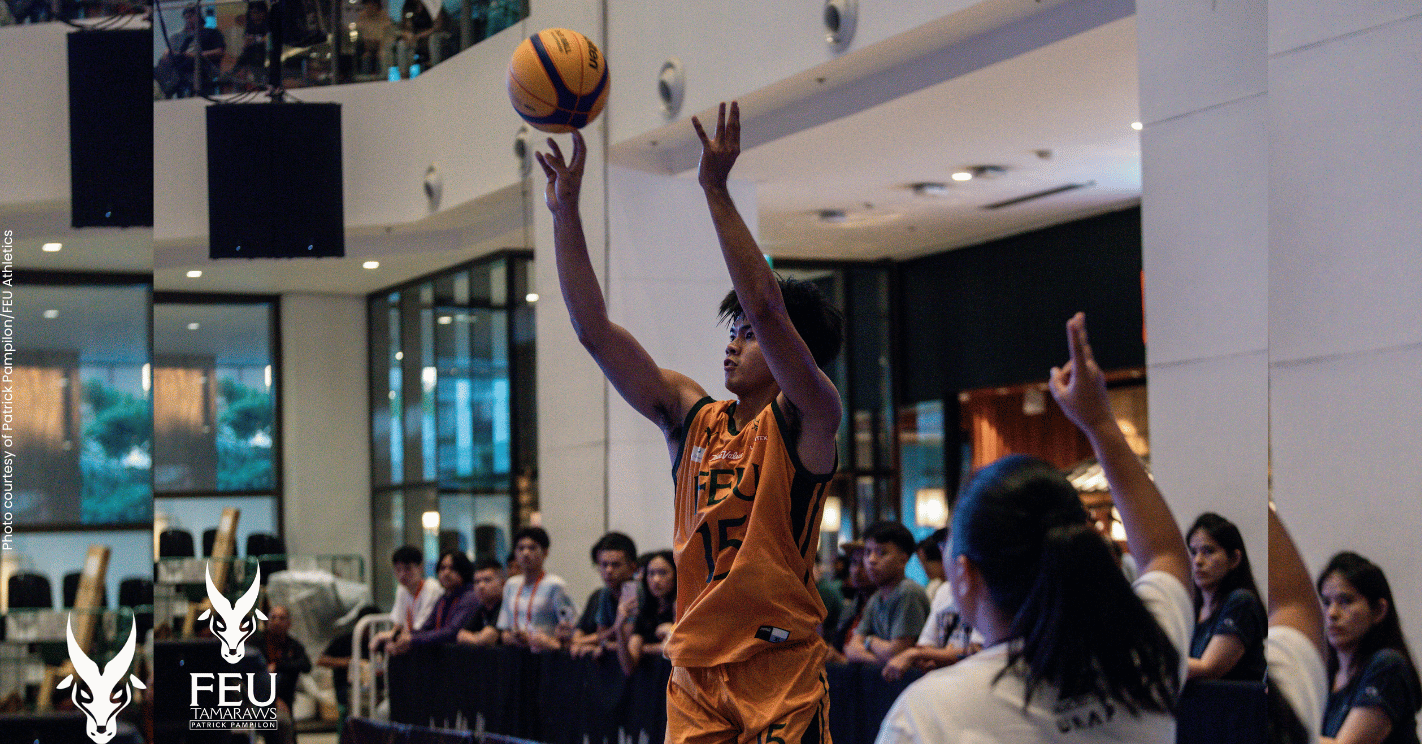
Tamaraws lose close match vs AdU
- May 03, 2024 15:45
FEU Advocate
July 30, 2025 21:14
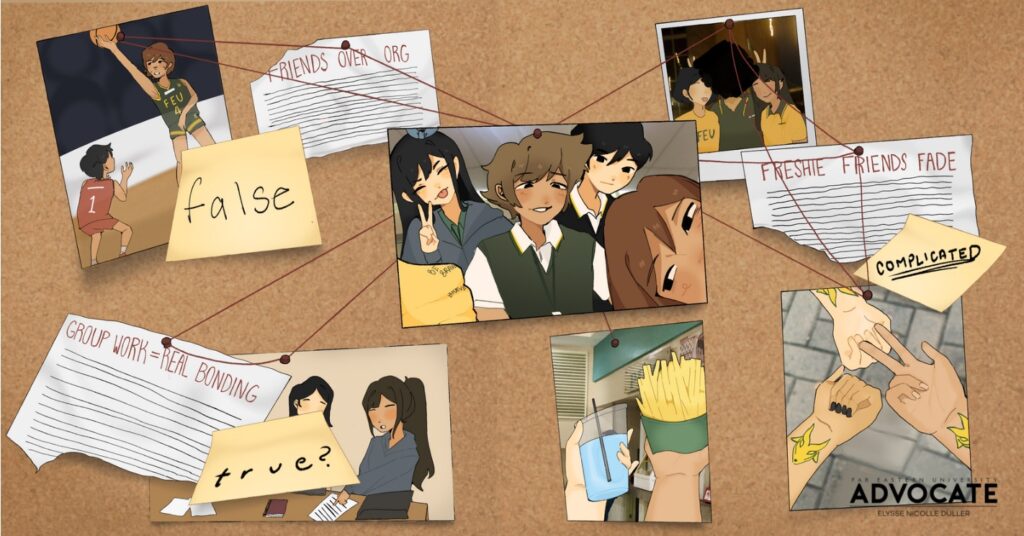
They say college is where lifelong friendships begin—but just how many actually make it to the finish line? At Far Eastern University (FEU), myths like ‘your freshman friend group won’t make it to graduation’ are passed around like cautionary tales. Reflecting a deeper fear: that success and connection coexist. Yet time and time again, it is the very pressures of college life that forge unbreakable bonds.
In time for the International Day of Friendship, we are peeling back the layers behind these myths—drawing from real Tamaraw experiences that reveal what really happens between the first-day highs and the unexpected goodbyes that follow.
From big friend groups to forgotten connections, this piece delves into what makes some friendships stick, and why others do not.
‘Tropa naman tayo, eh!’
For many students, the freedom to choose your own groupmates can feel like a gift, and choosing your friends sounds like a good idea, until it is not. When deadlines hit and responsibilities blur, the line between friendship and frustration is tested. The question stands: is working with friends a smart strategy or a common pitfall?
In an interview with FEU Advocate, incoming first-year Nursing student Jhames Lorenzo recalled how academic pressure once strengthened his friend group during a roleplay project.
“We were all comfortable sharing ideas and helping each other, and we ended up having fun while still doing a good job,” he shared.
Comfort and trust often drive students to pick friends as groupmates, making it easier to speak up and work without fear of judgment. But that comfort does not mean you are in for an easier job.
Lorenzo also experienced the opposite: a research project that ended in fallouts, revealing how friendships can crack under the weight of academic pressure.
“We already had a leader, but they weren’t really leading, so I stepped in to get things done,” he recalled.
What followed was tension, unspoken comments, and the realization that his efforts were not appreciated. He eventually walked away from the group, realizing that friendship shouldn’t excuse lack of effort or respect.
Moments like this often push students to reevaluate what friendship really means. Is it just about comfort and history, or the ability to grow through conflict? Friends may assume closeness excuses shortcomings, or that loyalty means picking up the slack. But as Lorenzo put it, holding each other accountable is part of what real friendship should look like.
We gravitate toward friends for group work because it feels safer—but comfort does not always mean compatibility. In the end, it is less about the friendship itself and more about choosing responsible teammates who respect both the task and the team.
Not all friendships are formed within the four walls of a classroom. While some bonds are tested by academics, others are built over time in a common grind, like late-night org meetings and handling campus events that at times feel more personal than professional.
Org friendship dynamics
It is no secret that FEU student life thrives on a culture built around connection and community. This makes ‘org culture,’ the popular practice of joining school organizations to meet people and gain experience, a defining part of the college experience. These spaces often become starting points for friendships that grow beyond the usual classroom setting.
Psychology graduate Maria Rajenna Domingo said that ‘org culture’ became a significant part of her college life, adding life beyond the classroom.
“It was fun and very engaging talaga to join orgs, especially sa culture natin in FEU. Kumbaga parang hindi kumpleto ang college mo if wala kang org (It was fun and very engaging to join orgs, especially in the culture here in FEU. It is like your college experience feels incomplete if you’re not part of an org),” she shared.
But beyond that, Domingo learned that making genuine friendships in orgs does not happen overnight.
“Being part of an org means marami ka talagang makakasalamuha whether sa isang event mo lang siya makakawork or marami pang iba (You’ll definitely meet a lot of people, sometimes in just one event, sometimes in more). But being part of an org doesn’t automatically mean you’ll be close or even trust everyone,” she admitted
For her, meaningful bonds were formed not by default, but through shared experiences and genuine interaction. Unlike classroom-based friendships born from proximity and routine, org dynamics require active effort to connect beyond tasks.
Domingo also expressed how many view organizations as social gateways on campus—whether joining out of passion or simply to find their people through shared interest.
“Kasi lalo na nga sa culture natin sa FEU, may stereotype rin kasi na kapag nasa org ka, sikat ka. So I genuinely think people join orgs for various reasons, and having friends is one of it (Especially in our culture in FEU, there’s also a stereotype that if you’re in an org, you’re popular. So I genuinely think people join orgs for different reasons—and making friends is one of them),” the alumna explained.
She emphasized that friendships formed in orgs can be real, but only when they are rooted in genuine purpose. In FEU, organizations are more than hacks or shortcuts to popularity; they are spaces where students can connect while contributing to something bigger than themselves.
But even the most purposeful connections can change. No matter how strong the bond feels at the start, or whether it is built in org rooms or classroom corners. In college, priorities shift—and sometimes, people do too.
When college bonds don’t stick
You start college thinking your barkada will stick around until the end. But with shifting schedules and deadline overload, friendships can slowly take the backseat. Even the closest friendships can unravel when your values start heading in different directions, and the myth ‘Walang forever sa college friendships’ starts to feel real. So what’s really behind the distance: time, change, or just life getting in the way?
A Psychology alumna using the alias ‘Sophia’ recalled how her college journey began with a group of 11 blockmates, inseparable and always grouped in activities.
“We became each other’s lifeline during the struggles of online classes,” she said.
But the shift from online to face-to-face exposed cracks in that bond. Conflicts emerged: clashing work ethics, skewed group dynamics, and the unspoken expectation that the ‘achievers’ would do most of the work.
“Parang kami [the achievers] na lang ‘yung laging nagbubuhat (It felt like we [the achievers] were always the ones carrying the load),” she shared.
With this, burnout from the friendship made it heavy: words left unsaid piled up, and the weight of carrying both tasks and tension became unbearable. This eventually led Sophia and a few of her friends to walk away reluctantly, even if it cost their friendship.
Even then, she recalled how the group grew resentful when she and her friends cut ties, failing to see the weight they had been carrying. What was once a ‘mighty bond’ fell apart by senior year, showing how closeness built online does not always survive every situation offline.
However, incoming second-year Nursing student Fiela Custodio offered a quieter perspective: that not every friendship lasts, especially when values and priorities simply no longer align.
“I didn’t really feel sad about it, but the realization occurred to me that not every friendship works out. Maybe because we have different sets of values and priorities in life, and it didn’t align with each other’s goals,” Custodio shared.
While some friendships end due to conflicts like misunderstandings or irresponsibility, college friendships do not always end with closure. Whether formed online or offline, many begin by overlooking red flags.
At first, it feels easier to stay than to confront what is wrong. However, holding on does more harm than letting go. In the end, what matters is choosing relationships where both people keep showing up with honesty, not just history.
But whether friendships last or fade, one thing becomes clear: it’s not always the number or the place that matters. In a world where we are constantly told that more is better, it is easy to mistake visibility for value, and that is where things get blurry.
More is not always merrier
From campus halls to Instagram highlights, big friend groups are everywhere—loud, lively, and hard to miss. But when everyone is trying to be seen, it gets easier to feel invisible.
Social media rewards how friendship looks over how it feels, pushing a culture where being surrounded matters more than being understood. So are big friend groups truly built on connection, or built for show, not for substance?
At first glance, it seems harmless. But for some, being in a big group does not always mean you feel like you belong.
Incoming first-year Nursing student Mykaella Atienza opened up about feeling disconnected despite being part of a friend group.
“It’s like they had their own world, while you’re just there—present, but not really part of it… It really makes you wonder if you were actually close to them or just part of the group out of convenience,” she expressed.
College friendships often carry the weight of expectations, amplified by social media’s unspoken rules. Atienza observed how platforms shape the way friendships are performed, noting the pressure to match trends or curate moments that ‘prove’ closeness.
In big friend groups, this expectation can blur the line between genuine connection and simply keeping up appearances, making belongingness feel like something to display rather than experience.
And when you do not feel like you are part of that picture-perfect setup? It can lead to self-doubt, Fear of Missing Out or FOMO, or even a sense of failure, as if you are doing college wrong.
“Social media can amplify that feeling, making it seem like if you're not part of something, you're being left out,” Atienza reflected.
So when it comes to whether or not having a big friend group means you are happier in college, social media often reinforces the idea that more equals better, but presence does not always mean connection. Real friendship is not measured by volume, but by the ways people show up, even when no one is watching.
Maybe it’s not a myth, just misunderstood
College friendships are not always the ride-or-die bonds they are made out to be. Some end without warning, strained by time or growth.
“Life gets busy, but real friends will still show up for each other—even in small ways,” Lorenzo shared, a reminder that being genuine is the key to lasting friendships.
The myth, then, is not that college friendships are fake; it’s that they are effortless. A friendship demands effort and the courage to outgrow what no longer feels right.
Betrayal, insecurity, and fading connections are part of the terrain, but friendships that drift apart are not necessarily failures; they are often proof that growth does not always move people in the same direction.
What if the real measure of friendship is not who stays, but who chooses to meet you where you have become, not where you were?
This International Day of Friendship, it is less about perfect, unbreakable bonds, and more about being human. Maybe students should not stop trusting in people, but they can start expecting honesty over perfection. Because in the end, what lingers are not the flawless moments, but the moments that shaped you, good or bad, together with the people who stood by you through them all.
(Element by Ellysse Duller/FEU Advocate)


